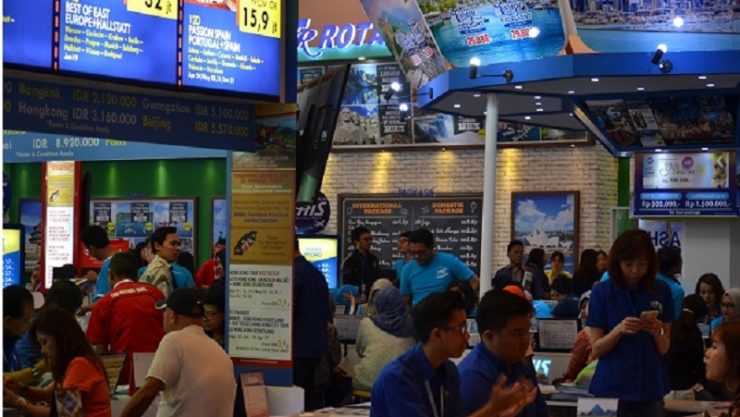THE COVID-19 pandemic has swept across a number of business and industrial sectors. One of the hardest hits by the pandemic is the tourism industry and its supporting businesses. The imposition of an emergency Community Activity Restriction (PPKM) prolongs a difficult period in the tourism business.
According to the Secretary General of the Association of Travel Companies (Asita), Bahriyansah Momod in Jakarta, Friday (7/2) said the difficult conditions for business players have been seen since 2020, when the revenue of travel agencies fell by 85% compared to 2019. 2021, there will be an increase of around 20% at the beginning of the year.
However, that growth momentum did not last long. Because in the second quarter period, the ban on going home brought the tourism travel business back down. Understandably, the momentum of Idul Fitri is usually the peak season for this business segment.
“At the beginning of the year, from February to the fasting month yesterday, there were actually slightly better business activities compared to last year. But after Lebaran, everything has gone down again,” said Bahriansyah.
Regarding the resilience of travel business players facing the pandemic, Asita also conducted a study. Asita’s internal survey mapped its 6,800 members across Indonesia. As a result, as many as 30% stated that they were closed and no longer active by terminating all employees.
Then, 65% are still operating without an office and employees. While the remaining 5% still stated that they still have a limited number of employees. The 5% that were able to survive were mostly part of corporate subsidiaries, agencies and institutions, state-owned enterprises and also a small amount of foreign investment.
Seeing the difficult choices from the government and business players’ perspective, Bahriansyah stated that his party could only surrender and support the emergency PPKM policy which was implemented on July 3 – July 20, 2021. In this way, he hopes that the COVID-19 pandemic can be controlled.
“Because handling the pandemic is the key to re-growing the tourism industry and its supporting businesses. Emergency PPKM increases the length of the prone period. We still hope that the Emergency PPKM policy will have good results so that it will have a good impact on us in the tourism industry, which is the industry that is the first to be affected by the pandemic,” Bahriyansyah noted.
To survive, he continued, many Asita members have switched to other business segments. For example, to a culinary business either by using the office or online. Not a few shift any odd job profession. Hopefully, certified educated personnel in the tourism industry will not disappear if everything is normal in the future.
“While sticking with the strategies in each corporation, Asita also hopes that there will be a stimulus that can move the tourism sector. The concrete stimulus that the government can provide, for example, is by providing incentives for purchasing tour, accommodation, and transportation packages that are formulated through data on tourists who have been vaccinated against the COVID-19 zoning in green zoned areas,” he added
He concluded that we as administrators hope that the tourism sector stimulus will be accelerated. If the time is possible, we hope that the concrete stimulus will be evenly distributed to business players,” [kontan.co.id/photo traveltext.id]
















